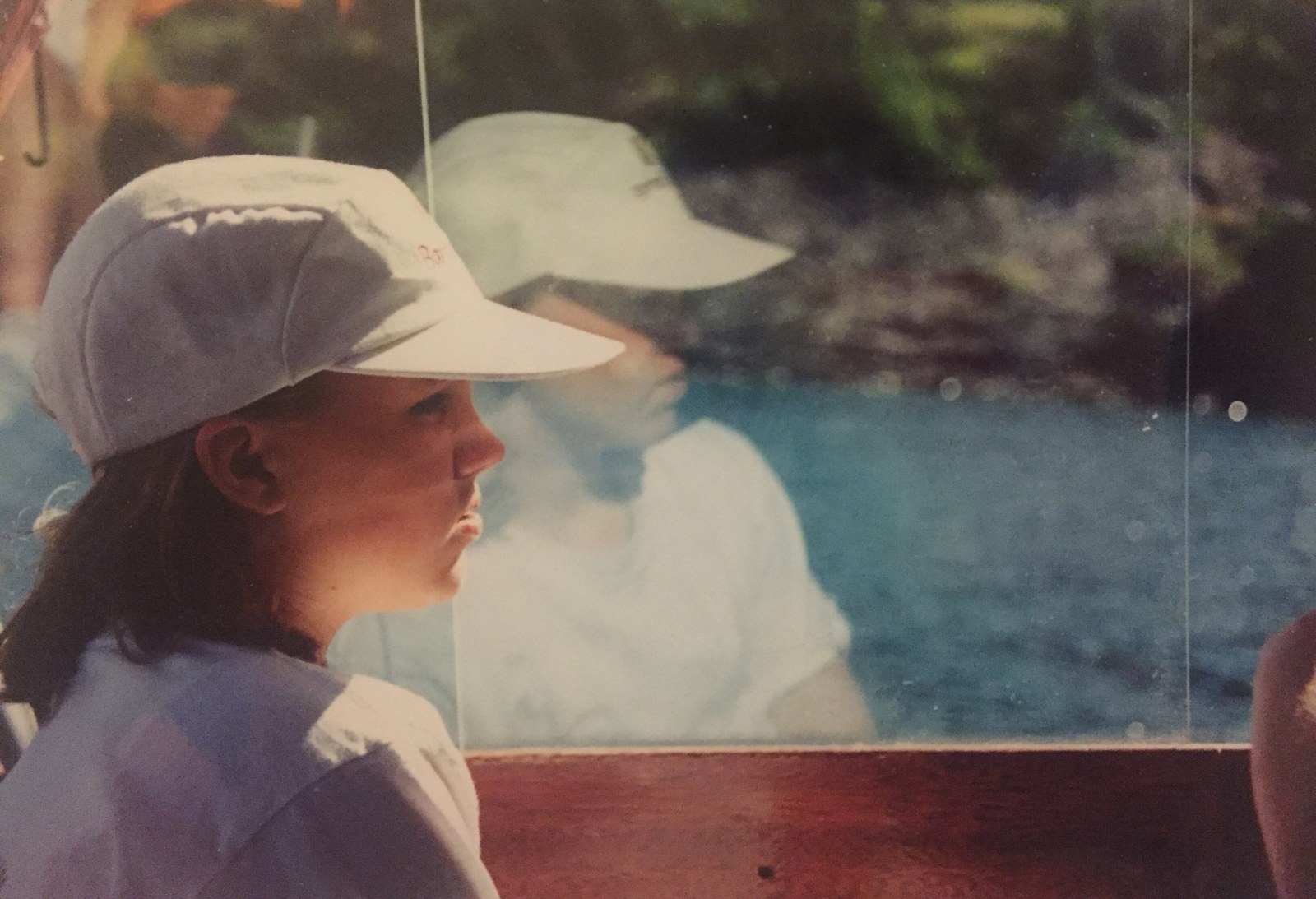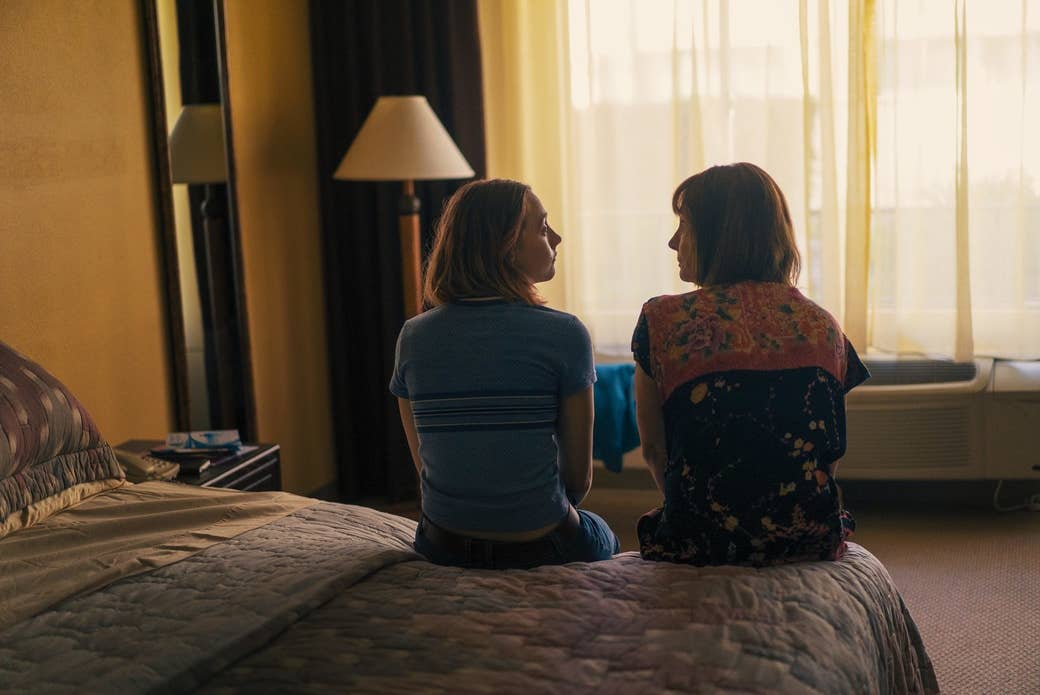
A few years ago, women I know started apologizing to their moms. For many, it started in earnest when they had their own children, and began confronting the paradoxes of trying to maintain their own identity while helping a child build one from scratch. For me, it began in my late twenties, as the contours of my horribleness as a teen came into focus. Most of the time the apologies emerged as I talked with my mom after a glass of wine, sitting on our screened-in porch in Idaho on the now-demoted furniture that — back when I was my most horrible self — served as our living room set.
I was an often sullen and petulant middle schooler. I listened to the Smashing Pumpkins’ “Disarm” on repeat and goaded my parents into painting a wall of my once all-pink bedroom black. I only participated in family hiking trips if I got a new outfit (Umbros and a Mossimo shirt) at the end. I wrote passive aggressive letters to my mom (she’s saved them) dictating what kind of dresses she should wear when she came to a meeting after school (“If you could just do these things”) and signed them Sincerely, Your Daughter, Anne Helen Petersen.
My worst offense was in 1996, when my father left my mom, suddenly, on the night before the first day of high school. I forced her to take me to Payless ShoeSource that night so I could buy some navy clogs that matched my first-day-of-school outfit. They were cheap and hideous; they fell apart within months. But I remember exactly how they looked and exactly how important it felt that I have them in order to show up to school, intact as myself.
It’s all darkly, absurdly funny now. We laugh about it until my mom snorts, one of her qualities I loathed back then but love now. But that incident, like another moment several months later, when I screamed at her because she couldn’t stop crying long enough to sew a button back on my skirt, illustrates my broken end of our relationship. I don’t think I saw it as a relationship at all; relationships require some sort of reciprocity of care, of empathy. Relationships require two people to act as two ends of an axis, not just a mom orbiting around a teenager’s angry gravity. I couldn’t see that then, or imagine my mother playing anything but a supporting role in my own star vehicle.
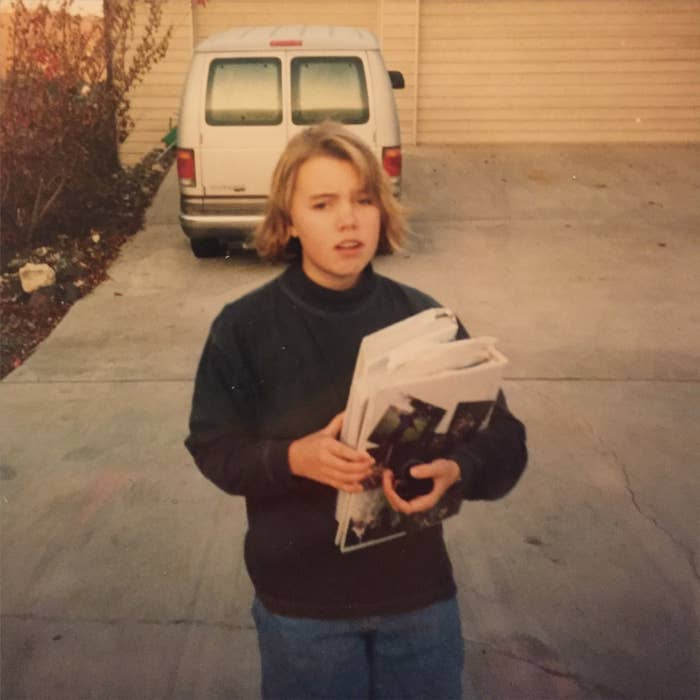
“I want Marion to secretly be the main character,” Greta Gerwig told the New York Times Magazine, referring to the titular protagonist’s mother in her directorial debut, Lady Bird. “I kind of wanted her to take over the movie.”
Marion (Laurie Metcalf) is the mother of high school senior Christine “Lady Bird” McPherson (Saoirse Ronan) and operates, like so many mothers in coming-of-age narratives, as a sort of undulating mirror. Sometimes she reflects Lady Bird’s worst impulses, her least charitable self, an embittered future. At other times, that reflection, however distorted, feels like a promise — a model of how to be, as one of Lady Bird’s boyfriends puts it, at once scary and warm.
I’ve heard people argue that Marion comes off as too stern, too unloving — that she’s uncharitably framed as an impediment to Lady Bird’s liberation, instead of a facilitator, like her jokey, understanding father. That she has less screen time and interiority, that she gets to grow less, that the character is rooted in stereotypes of the shrill, witchy, domineering mother.
Yet as with most cinematic moms, how you view Marion — and the film’s characterization of her — likely has a lot to do with your relationship with your own mom. As someone who was approximately Lady Bird’s age in 2002 (when the movie takes place), I’m just far enough from high school, and the particular labor of the mother-daughter relationship that accompanies it, to see it differently. To me, it’s not just that Marion and Lady Bird’s relationship is at the center of the film. I see them as fully joint protagonists, equal in purpose and meaning.
That understanding requires a sort of weighted distribution of appreciation. Compared to her daughter, Marion has far fewer scenes or traditional chances, narratively speaking, to grow. But something you learn after high school is that, without the momentousness of “firsts” (first time smoking weed, first time having sex, first time breaking up, first time getting caught in a deep and elaborate lie, first deeply felt disappointment, first confidence in your own taste) and societally ordained milestones (dances, college applications, graduation), growth occurs in much smaller, much more incremental and counterintuitive ways. And most of these moments are invisible to everyone save your deepest self.
What we see, then, is a mixture of Marion’s best attempts at being a good mother and her relentless struggle to fulfill all the other roles (wife, worker, housekeeper, financial planner, fashion plate) expected of her as a woman in society. It’s when those roles exhaust her that her “bad” mothering breaks through: her reaction to Lady Bird’s prom dress (“I just want you to be your best self”), her inability to forgive Lady Bird for applying to New York colleges behind her back.
In this way, Lady Bird reminds us that moms are people, too, flawed and wonderful, broken and hopeful. Most films forget as much, even if we, as their children, come to understand it more every day.
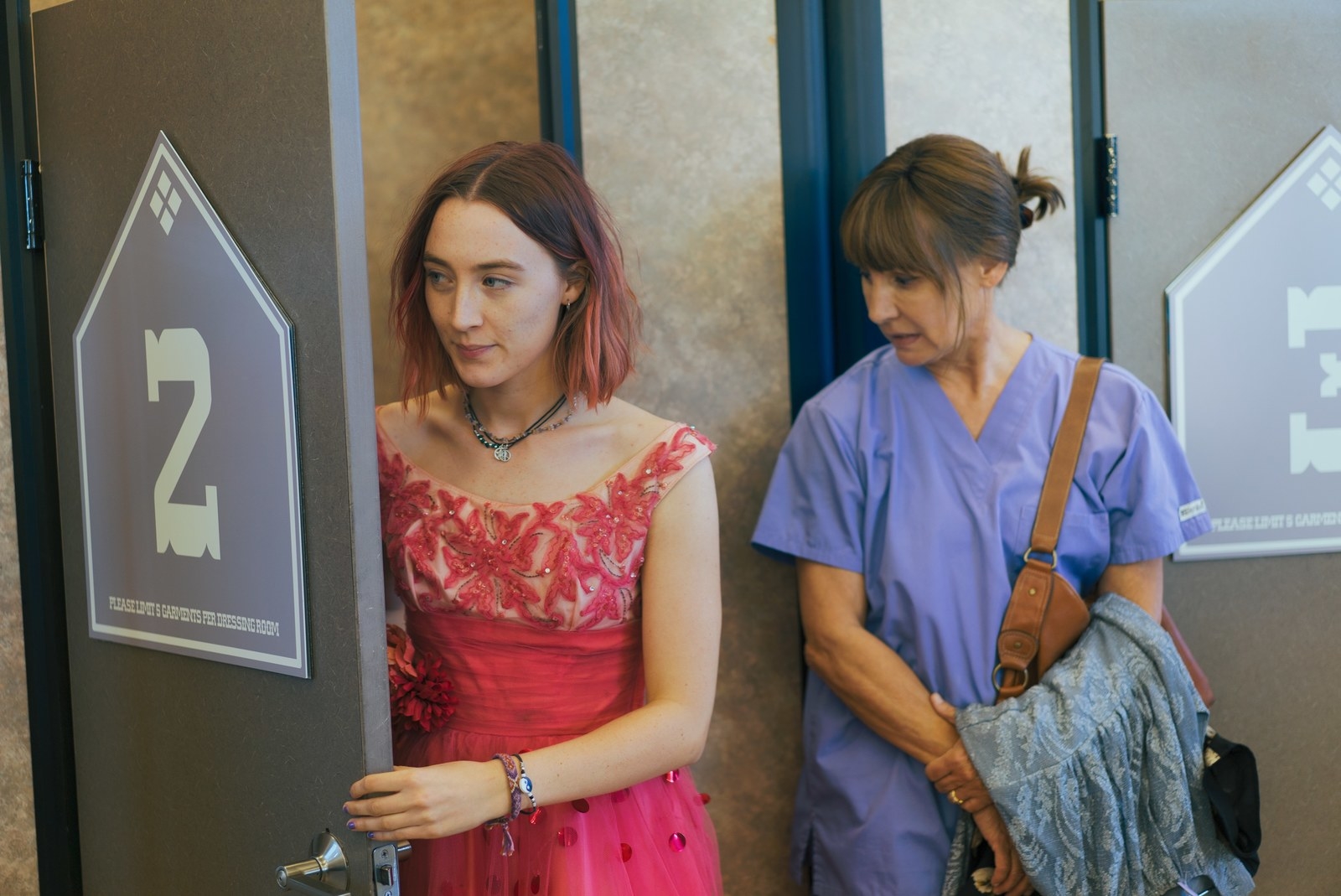
When my mom fell apart during those teen years, I got mad because she wasn’t, in those moments, my mom. She couldn’t perform the duties and maintain the solidity, the depersonalization, of motherhood: part punching bag, part provider.
That’s what I apologize for now: lacking the maturity to be able to see my mother as a person, and missing the ways I could have somehow facilitated — or at least not been such an unrelenting thorn — in her process to regain her sense of herself.
My mom bore my insults and demands and diluted them by pouring them back into the well of love she’d developed for me, her only daughter, over the years. Even when I got mad that she wore sports bras (good moms wear real bras!) and instructed her to dress like the cool moms, instead of in the same long, sack-dresses Marion favors in Lady Bird.
Some of it she laughed at. Some of it stung, in part because such a rigid understanding of how a woman should behave was precisely what she had spent my childhood gently guiding me away from.
But my mom knew, even if I didn’t, that I was mourning, too.
She took me to get those shoes. She sewed that button back on that skirt. She let me steal her CDs and borrow the car, even after I crashed it during my first weeks of driving it, because she knew it offered the only thing that felt like independence in our town. When I made friends with a girl whose father had also left — but still had a big, sprawling family at home — she let me sleep over there, even on school nights, even when the house she’d built with my dad felt echoing and empty.
Those are the things I know about. But there are hundreds of other things she did or felt without my knowledge, without me seeing. Things she let go, things she made easier. She was sad a lot, but she also went on dates and read books and finished her master’s degree and built a home and future of her own. She guided us through our first Christmas. She started new traditions. She talked openly, but without toxicity, about what had happened to us. She never tried to erase or ignore the places where we’d broken. Moving forward never meant forgetting. And that took so much more labor than I understood.
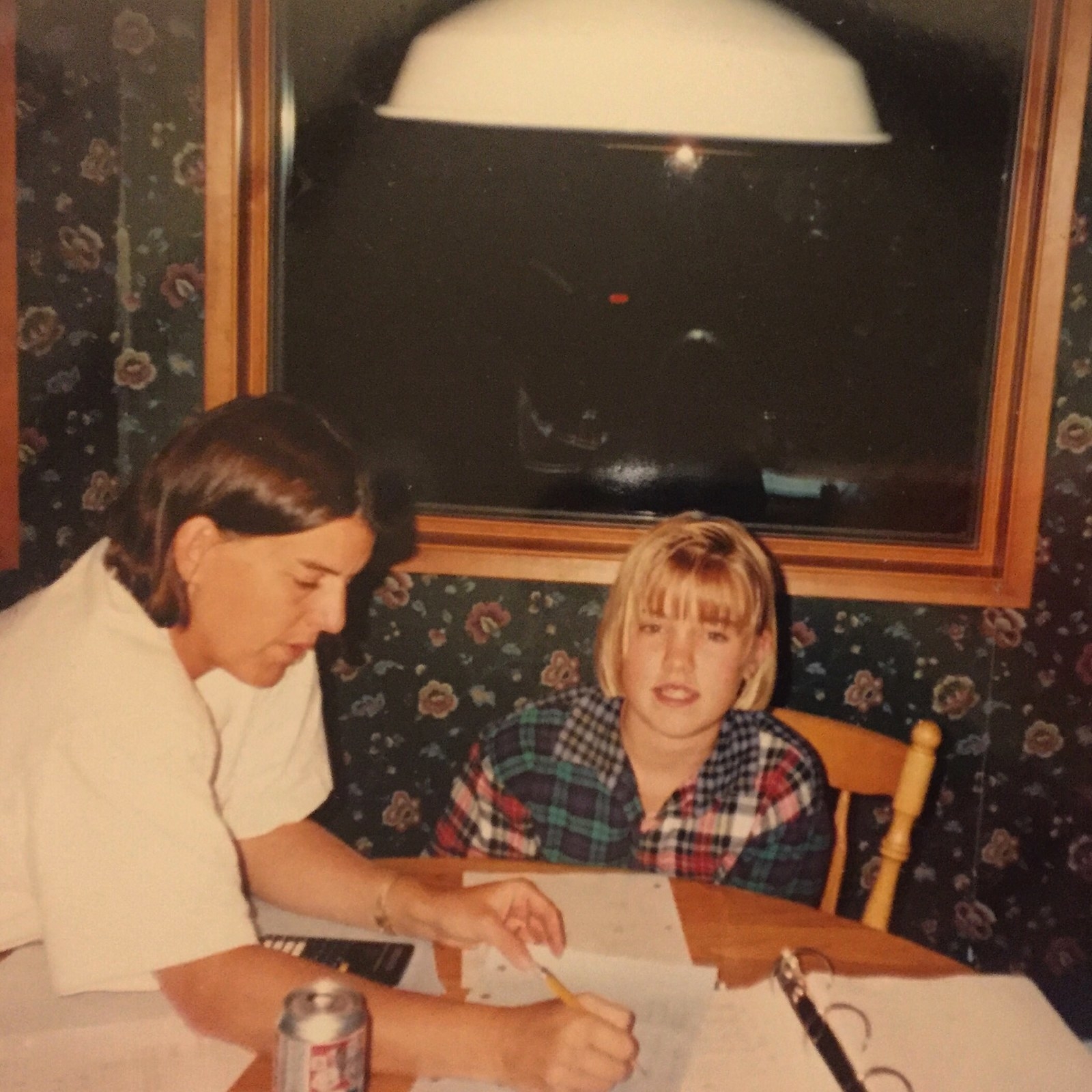
The day I left for college, I’d planned my outfit (Gap button-up with khaki Gap shorts — forgive me, it was the early 2000s). I didn’t tell my mom what to wear. On the drive over, as she’d tell me years later, she stifled laughter at my attempts to hide my nerves, and my awkward first meeting with my dorm roommate. Watching someone settle into their future personality is never not embarrassing.
But then she cried on the way back, driving through the rolling hills that tethered my new home and self to the old one with her. I didn’t know that, just like Lady Bird never knew that her mom circled the car around the the airport, shaking with remorse and emotion as her daughter boarded a plane to fly across the country. Lady Bird doesn’t see the hours of labor her mom puts into altering a dress for a Thanksgiving spent away from her, but we do. We see what it’s like to counsel Lady Bird’s theater director, in total privacy, because he has no support network. We see the small but transcendent joy of driving home, alone, when the light is just right and the world seems to align.
But even if Lady Bird doesn’t see that moment, either, she intuits a shared and particular perspective. When the shot of Marion driving the car is intercut, just for a second, with Lady Bird doing the same — that’s the moment, in a film full of moments that made me ache for my mom, that undid me.
One time in high school, I convinced my mom to make the two-hour drive to the “big city” with my best friend and her mom — who, in hindsight, could not have had less in common with mine. (Because kids don’t view their parents as people, they also don’t view them as having taste in friends, which is why they expect any mom to be friends with any other mom.) Like Lady Bird, I saw her as a checkbook. Like Marion, my mom saw shopping as a chance to spend time together, even if it meant browsing at Abercrombie.
On the drive back, the sky began to flare pink, then orange, then deep red, amplified by the dust from the summer harvest. This was before cell phones; no one tried to take an Instagram. But my mom and I would not shut up about it: “Would you look at that,” my mom said. “Look over there!” I yelled, contorting myself to get the best view.
“Wow, I’ve never seen anyone so worked up about a sunset before,” my friend sighed. She and her mom shared a smile, then stared straight ahead.
My mom and I kept looking out the window, until the last bit of the sunset blurred to blue-black.
Moments like that aren’t a matter of realizing that you’re becoming, or have become, your mom. It’s nothing nearly as neat or easy as that. It’s more like irrefutable evidence that you are two poles of the same axis, joint protagonists, even if not always visibly so, in whatever story you’ll ever tell. ●
